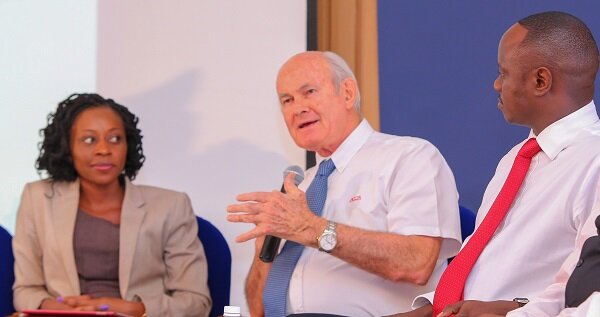Business leaders urge to make tax predictability a budgeting priority
By Claire Wanja/Release
Business leaders have urged policy makers to embrace a predictable tax regime in national budgeting, enabling the business community to make sustainable plans to fuel Kenya’s economy in future.
A cross-section of stakeholders representing various sectors petitioned policy makers to consider international best practices in countries with fiscal policies that support sustainable long-term growth or risk losing local and foreign direct investments and, in turn, jobs.
Speakers at a Tax Predictability public forum hosted at the Strathmore Business School, implored on Kenya Revenue Authority (KRA) and The Treasury to fast-track efforts geared at stabilizing the local tax regime.
The Kenya Association of Manufacturers (KAM) CEO Ms. Phyllis Wakiaga regretted that local manufacturers are fast losing their competitive edge to other regional firms due to the unpredictable nature of the local tax regime. To foster national growth, Wakiaga noted that taxation policies will need to be aligned to long-term national development plans such as Vision 2030.
“The ongoing culture of tax regimes that are far removed from the national development agenda is regrettable. Taxation should be predictable and broad-based, enabling economic agents to plan accordingly, therefore securing a strong future of both our businesses and the economy at large,” said Ms. Wakiaga.
The public session was held ahead of the Budget Statement reading for the financial year 2017/2018 slated next Thursday and included KAM representatives, tax experts, distributors and farmers passionately outlined the benefits of a predictable tax environment.
Phillip Muema, a local tax with Nexus Business Advisory said tax predictability is critical for business growth as it provides a solid base for long term business planning. Such efforts he said can potentially accelerate tax collections by 30% through facilitation of tax administration procedures by boosting compliance.
“A sound tax system ensures that the government is able to raise revenue internally. That is why a robust tax system should be informed by progressive tax reforms necessary to ensure that the business community, farmers among other economic actors continue to enjoy an enabling environment to flourish,” Muema said.
Speaking at the same forum, Strathmore University don, James McFie stressed that integrity in the management of public funds was critical adding that public finance mismanagement was cause unnecessary burden on the taxpayers.
“Unpredictable tax regimes founded on short-term plans end up providing a fertile breeding ground for trade in contraband among other economic ills,” he noted.
Christine Kanana and Flora Ikabu from Tharaka Nithi recounted the devastating experience of a negative tax in sorghum farming saying regretting erratic remission rates has denied over 30,000 small-scale farmers guarantee from East African Breweries Limited (EABL). The company is the largest commercial buyer of the crop, used to make Senator, a value beer aimed for price-sensitive, lower end of the market.
“We started off as a group of farmers seeking a better source of income from sorghum farming but our efforts have continued to suffer unnecessary disruptions’ due to falling market prices,” Ms Ikabu explained.
Even for small-holder farmers seeking to diversify their incomes, Ms Ikabu said the stability of the tax regime would continue fostering the adoption of such non-traditional cash crops such as sorghum, sunflower and stevia. The global tax agenda is increasingly moving towards an environment that facilitates a conducive, coherent and predictable tax regime.





